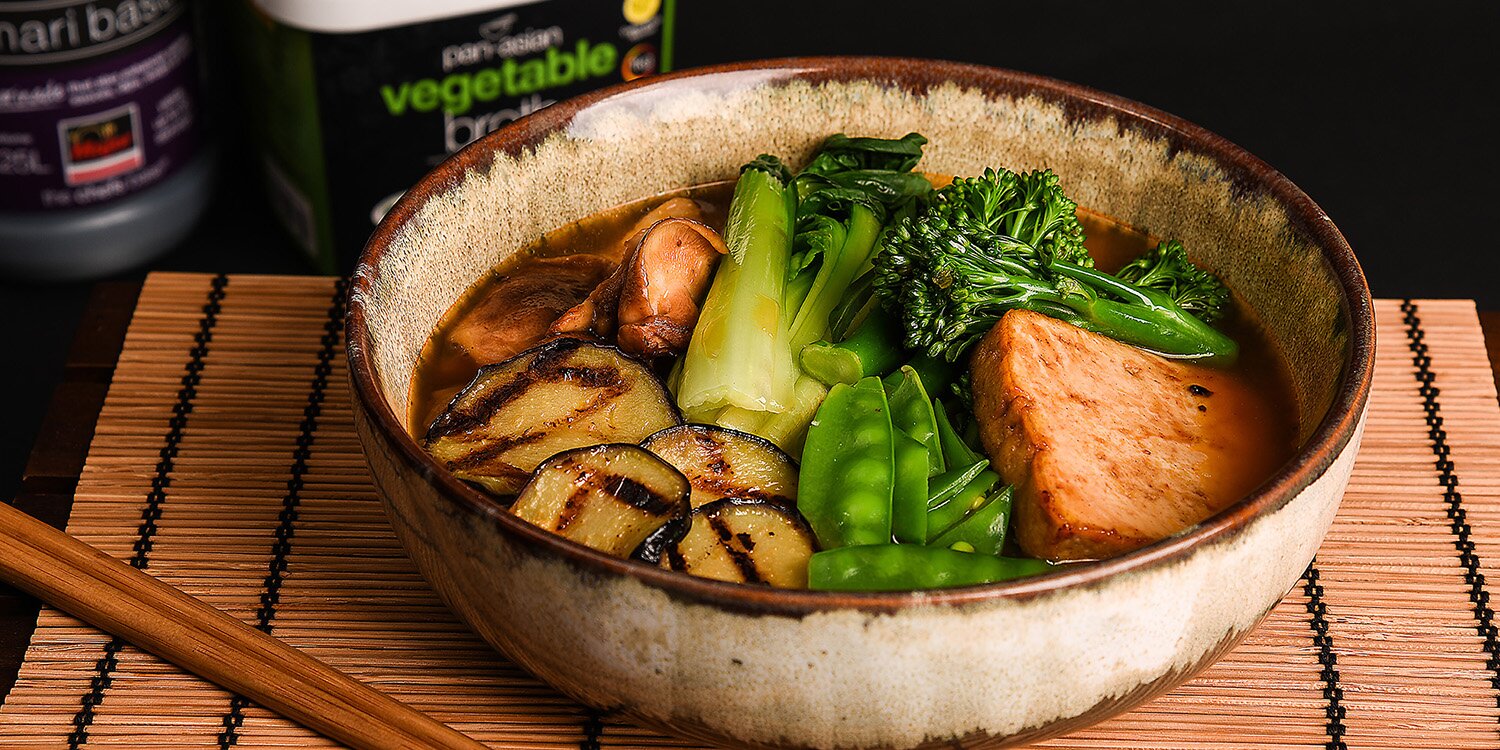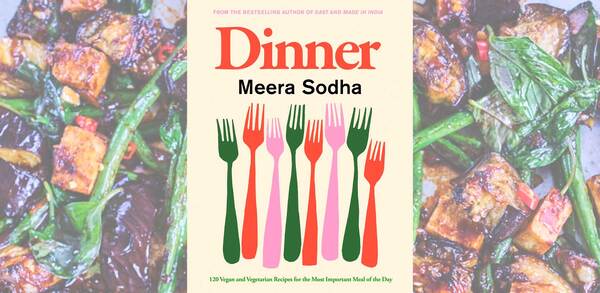Supersubs – the latest plant-based proteins
The rise of good-quality plant-based food makes meat alternatives a potential menu winner, as Angela Frewin reports
More and more consumers are turning to plant-based foods, for health or environmental reasons, or to reduce grocery bills when eating at home amid a cost of living crisis. In fact, Olivier Briault, development chef at Maple of Canada, points out that the Office for National Statistics revealed that as many as 28% of adults are actively cutting down on their meat consumption to navigate the cost of living crisis.
The increased appetite for plant-based food has made the hospitality industry sit up and take notice. Operators are tweaking menus to cut their own costs while also catering to diners’ changing preferences.
Phil Thornborrow, foodservice director at mycoprotein-based meat substitute pioneer Quorn Foods, has heard of operators making similar moves as a cost-saving measure when menu planning. Quorn itself has just launched a series of inflation-busting solutions, including a price freeze, ‘50% extra free’ packs of mince and vegan beef pieces, and a competitively priced 113g thick-cut veggie beefburger with recommended supplier prices below £1 per burger.

Meat-mimics
With full-time vegans and vegetarians accounting for just 8% of the population, it’s the meat-reducing flexitarians who are making plant-based options mainstream menu essentials. Hence the focus on replicating the characteristics of meat and dairy in familiar favourites.
Karen Heavey, brand manager for Kerrymaid, points out that 92% of plant-based meals are eaten by non-vegans, while the British Frozen Food Federation reports that meat-mimics represent 82% of frozen plant-based sales to consumers.
Harpreet Gill, founder of London-based Mock, believes that the 60% of consumers who remain unconvinced by plant-based food are deterred by a dearth of quality products that match the texture and taste of meat. He hopes to tempt them with Mock’s new foodservice range of chef-quality soya and wheat-based lamb and chicken alternatives. They include triple-battered chicken fillet burgers as well as other chicken fillet, popcorn and drumstick products. He sees future growth for the meat-mimic sector (forecast by Mintel to be worth £855m by 2026) coming from versatile whole cuts such as Mock’s chicken and award-winning lamb pieces.
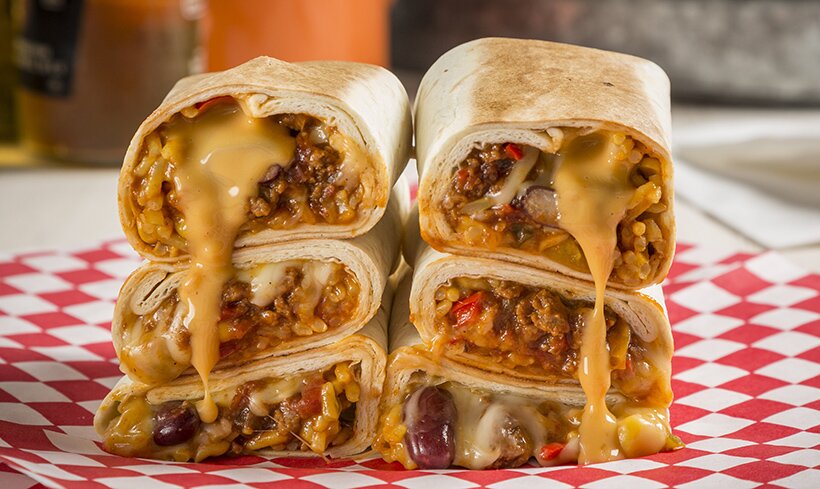
Olivia Sinclair, UK marketing manager at Planted (formerly Eatplanted), detects a key trend for simplification, clean labels and natural flavourings: “What we’re seeing is better-quality staples coming to the shelves, which coincides with the demand for ‘back to scratch cooking’ and health, and stems from the cost of living crisis.”
The Zurich-based foodtech business boasts an exceptionally short ingredients list for its naked chicken product – just peas, rapeseed oil, water and B12. Its fibrous-textured gourmet faux meats – which include chicken, BBQ pulled pork, skewers, schnitzel, and marinated kebabs – are made by bio-structuring the proteins from peas, oats and sunflowers.
Morten Toft Bech, CEO at Meatless Farm, predicts that seafood alternatives will be one of the fastest-growing sustainable protein product categories in 2023 as 59% of consumers are looking for more sustainable fish and shellfish alternatives. With just 18% of tuna products carrying the MSC ecolabel, the group hopes to reel flexitarians in with its new wheat- and pea-protein-based frozen tuna with a shredded texture and naturally sourced salt and sea flavours.
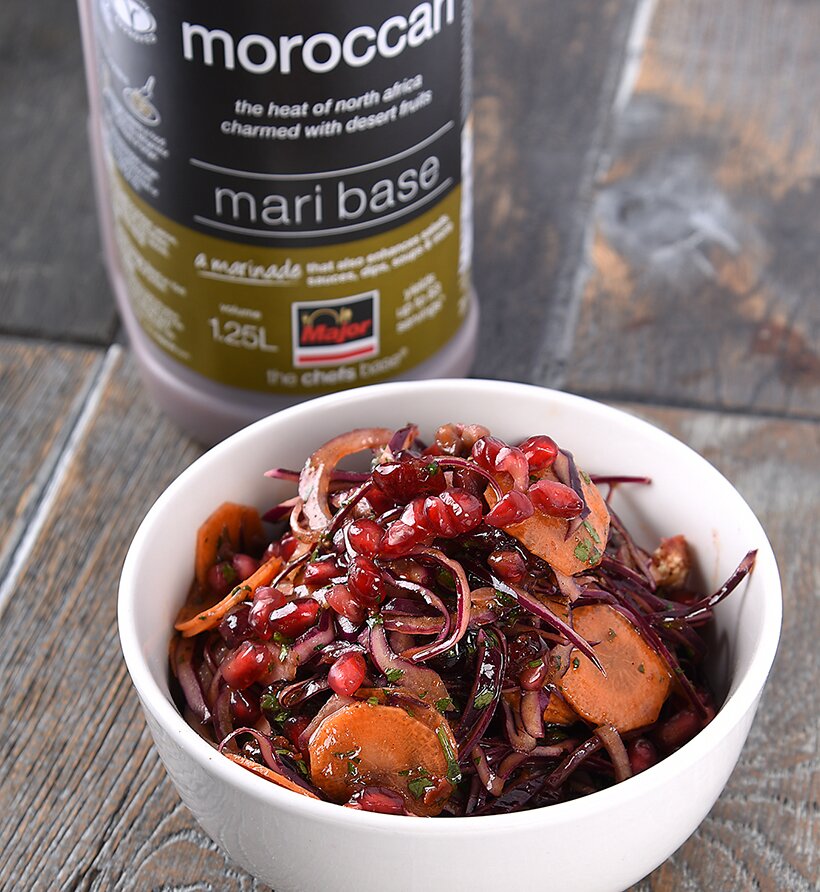
Ultra-processed out of favour
Consultancy firm McKinsey & Company reported in 2022 that while more than a quarter of consumers were reducing their intake of animal products, 43% were also cutting down on processed foods. “With growing scrutiny around ‘ultra-processed’ meat alternatives, traditional beans and pulses are re-emerging as a natural and substantial protein source for the plant-based market,” says Barnaby MacAdam, taste creator at Santa Maria Foodservice.
The customisable nature of popular Mexican cuisine allows easy swaps of Santa Maria chilli or pinto beans for meat, and frozen avocado slices smashed with chilli and red onion in place of cooling sour cream. Options for the all-important flavour injection range from a protein-based taco seasoning with cumin and chilli, aromatic Creole sauce, ancho chilli rub and succulent chipotle cooking paste.
Flavour specialists are ensuring plant-based dishes are as tasty as their carnivorous counterparts. More than half the stocks, sauces and gravies developed by Major International are certified by vegan and/or vegetarian societies, while Macphie’s plant-based cheese, white, demi-glace and taco sauces, and its cream alternative, are endorsed by the Craft Guild of Chefs. Pure maple syrup, adds Briault, brings depth, richness and spice amplification to Indian, Middle Eastern and Sri Lankan foods as well as dressings for salads, buddha bowls and wraps.
Dairy done different
Dairy alternatives continue to evolve, and Sinclair at Planted has been impressed by the natural, quality credentials of Plenish’s line of oat, cashew, almond, hazelnut, soya and coconut milks. Earlier this year organic artisan cheeses from France’s first vegan creamery Jay and Joy, made from almond milk, cashews and coconut oil, landed in fridges across the UK.
Heavey warns against alienating vegetarians with an oversimplified offer of, for instance, just vegan cheeses, when incorporating products into popular plant-based dishes such as burgers or pizzas. According to the Agriculture and Horticulture Development Board, these two fast-food options account for 23% of vegan choices. Kerrymaid crafts its vegan slices from coconut oil, tapioca starch, pea protein and modified potato starch to mimic the taste, texture, melt and cohesion of its vegetarian- friendly original dairy slices.
“We’re finding that, where possible, recipes of many pre-prepared items are increasingly being tweaked to make them suitable for a vegan or plant-based diet,” explains Gordon Lauder, managing director of frozen food distributor Central Foods. “This trend is being seen across the foodservice sector, but particularly in desserts and sweet treats.” Central recently replaced egg with oat flour and soya, wheat and pea proteins to make its Katerbake Belgian waffle a vegan option for breakfasts, mid-morning coffees and desserts.
“Bakers are starting to make the shift towards sustainable pastry rather than simply adding a vegan alternative to their portfolio,” says award-winning international pastry chef Marike van Beurden, co-founder of the Netherlands-based Be Better plant-based butter, which launched in the UK last autumn.
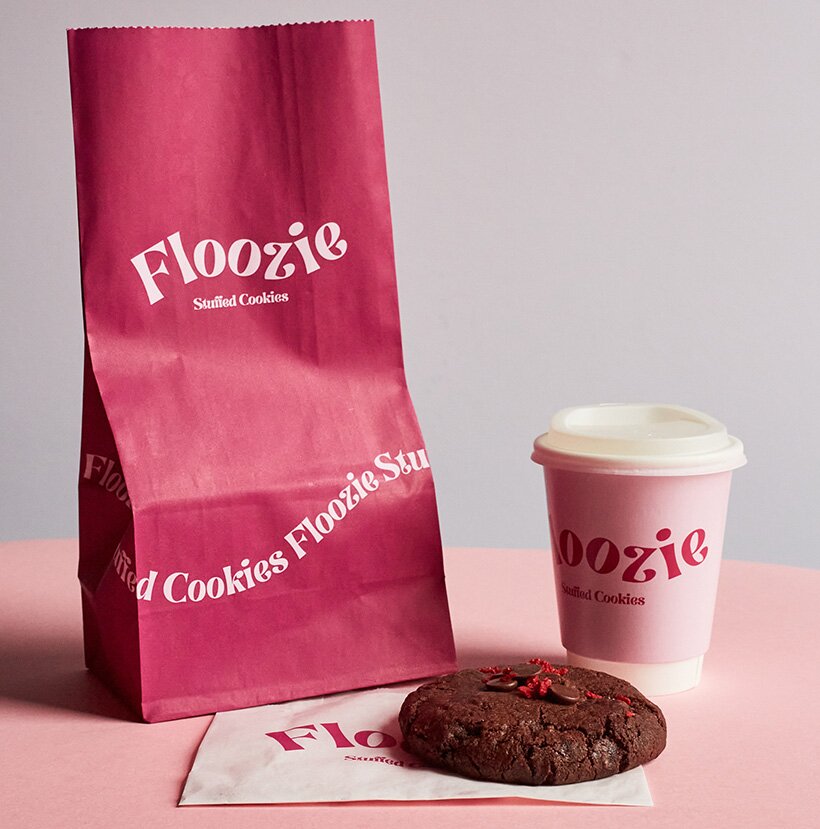
Designed for pastry, Be Better’s blend of shea, organic coconut and rapeseed oils aims to replicate dairy butter’s melting point behaviour and rich mouthfeel. It took two years to perfect, and the resulting lighter butter (whose neutral taste brings flavours such as chocolate and fruit to the fore) is substantially cheaper than dairy. Its production also generates 79% less CO2 and uses 86% less water.
The perception that plant-based bakeries and desserts were lagging growth in demand prompted former Savoy and Claridge’s pastry chef Kimberly Lin to set up Floozie Cookies in London’s Covent Garden. It offers a range of vegan hand-made stuffed cookies such as Black Forest, triple chocolate, peanut butter and raspberry jam, and a butterscotch date caramel pecan pie.
As vegan restaurants start to shift from a “junk-style offer”, Lin believes the currently popular meat-free nuggets, sausages and burgers will act as gateway products to healthier, less processed vegan offerings. “I hope in the not-too-distant future we will have huge numbers of country- or cuisine-specific restaurants,” she says. “In so many places around the globe, plant-based is the cultural norm, so those will be the ones that can authentically take the UK vegan market by storm.”
Plant Based World Expo returns to Excel London on 15-16 November to unveil the latest products, technologies and trends, along with conference sessions and networking opportunities. Visit www.plantbasedworldeurope.com for details.
Subs bench
A vast array of grains, pulses, legumes, nuts, fruits and veg have been harnessed as direct or indirect meat substitutes. There’s everything from spiced cauliflower steaks and wings, ‘bleeding’ beetroot-based burgers and meaty, fibrous mushrooms to more exotic street-food inspired options such as pulled-pork-like jackfruit, banana blossoms, tempeh and tofu.
Protein parity has been a key focus for faux meats, and popular options include pea, soya and wheat protein, beans and chickpea flour, says Laura Taylor, buyer at food procurement specialist Allmanhall. However, questions have been raised over the nutritional benefits of the more processed formulations, she adds, prompting analytics company CB Insights to predict that nutrient-rich algae, which requires significantly less land and water than animal protein and generates fewer greenhouse gases, could be the next big thing.
Potential stumbling blocks to the mass market adoption of algae, Taylor says, include high wholesale costs (at present, around $20 a kilo versus $1.50 for soybeans) and the fact that only four species are currently cleared for human consumption in the EU.
Tasty as well as right
“Many of our locations are seeing plant-based main courses accounting for over 50% of meals sold daily,” says David Anderson, joint managing director at contract caterer Wilson Vale, who credits the growing number of quality products. “In the past, people may have eaten plant-based food because it was ethically the right thing to do, whereas now it is also eaten because it can be delicious.”
While Wilson Vale generally shies away from meat mimics, it’s a fan of Heura’s novel soya- and olive oil-based faux chicken. “Our chefs have been serving fabulous curries using the Heura range, seitan katsu, lots of Asian dishes using tofu and mushrooms, and I have even seen a vegan chilli squid made using oyster mushrooms,” Anderson adds. Group chefs are working with vegan cheeses made from nuts, soy or coconut and testing ingredients that mimic tuna, salmon and shrimps. One site is even trialling potato milk.
Both Wilson Vale and Eurest use aquafaba (chickpea water) as a thrifty and whippable alternative to egg white. Oggs’s recent introduction of chickpea-based Scrambled Oggs has, says Eurest culinary director Ryan Holmes, taken its best-selling plant-based breakfast to the next level.
Eurest has teamed up with the Livestock Environment and People project at Oxford University to determine if eco-labels encourage more environmentally aware meal selections. “Dishes are labelled A-E to highlight which meals have a lower or higher environmental impact based on greenhouse gas emissions, water scarcity, water pollution and biodiversity loss,” explains Holmes.
Suppliers
Allmanhall allmanhall.co.uk
Be Better My Friend bebettermyfriend.com
British Frozen Food Federation bfff.co.uk
Central Foods www.centralfoods.co.uk
Floozie Cookies flooziecookies.com
Heura Foods heurafoods.com
Jay and Joy www.jay-joy.com
Kerrymaid www.kerrymaid.com
Macphie www.macphie.com
Major International www.majorint.com
Maple from Canada www.maplefromcanada.co.uk
Meatless Farm meatlessfarm.com
Mock www.mock.co.uk
Planted uk.shop.eatplanted.com
Plenish Drinks www.plenishdrinks.com/milks
Quorn www.quornfoodservice.co.uk
Santa Maria Foodservice www.santamariaworld.com
Wilson Vale wilsonvale.co.uk



